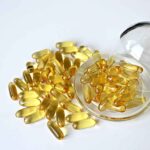Introduction: The Rise of Weight Gain Supplements
In a world obsessed with weight loss, weight gain supplements have carved out a niche for those looking to increase their body mass, whether for muscle building, athletic performance, or simply improving overall health. But with the rising popularity of these supplements comes a critical question: Are weight gain supplements safe?
This blog delves into the safety, effectiveness, and potential risks of weight gain supplements, offering a balanced perspective to help you make an informed decision.
What Are Weight Gain Supplements?
Weight gain supplements, often marketed as mass gainers or bulking supplements, are designed to help individuals increase their calorie intake and promote muscle growth. These products typically contain a mix of proteins, carbohydrates, fats, vitamins, and minerals, and are available in various forms such as powders, bars, and pills.
Common Ingredients in Weight Gain Supplements
- Protein: Essential for muscle repair and growth. Common sources include whey, casein, and plant-based proteins.
- Carbohydrates: Provide energy and aid in replenishing glycogen stores after workouts. Often derived from maltodextrin or dextrose.
- Fats: Healthy fats like MCT oil or omega-3s are included for calorie density and overall health.
- Creatine: A popular additive that helps increase muscle mass and strength.
- Vitamins and Minerals: To support overall health and enhance nutrient absorption.
Are Weight Gain Supplements Safe?
The safety of weight gain supplements largely depends on the ingredients used, the quality of the product, and how they are consumed. Here’s a breakdown of the key safety considerations:
1. Ingredient Quality and Transparency
- Safe: Reputable brands use high-quality, transparent ingredients with clear labeling. Look for products that are third-party tested to ensure they contain what they claim and are free from harmful substances.
- Risky: Some supplements may contain fillers, artificial additives, or banned substances that can be harmful. Always check for certifications and avoid products with undisclosed proprietary blends.
2. Dosage and Usage
- Safe: Following the recommended dosage and using supplements in conjunction with a balanced diet can be safe and effective. It’s essential to match your supplement intake with your nutritional needs and activity level.
- Risky: Overuse or reliance on supplements instead of whole foods can lead to nutrient imbalances, digestive issues, and potential long-term health risks.
3. Potential Side Effects
- Common Side Effects: Some individuals may experience bloating, digestive discomfort, or allergic reactions to certain ingredients, particularly lactose or gluten.
- Serious Concerns: High-calorie supplements can lead to excessive fat gain if not used correctly, increasing the risk of obesity-related health problems.
Who Should Use Weight Gain Supplements?
Weight gain supplements can be beneficial for specific groups, including:
- Athletes: Looking to build muscle and improve performance.
- Underweight Individuals: Who need to increase their calorie intake to achieve a healthy weight.
- Bodybuilders: Aiming to bulk up during off-season periods.
Note: It’s crucial to consult with a healthcare provider or nutritionist before starting any supplement regimen, especially if you have underlying health conditions.
Alternatives to Weight Gain Supplements
While supplements can be helpful, they’re not the only way to gain weight. Here are some natural, food-based alternatives:
- High-Calorie Foods: Incorporate nutrient-dense foods like avocados, nuts, seeds, and whole grains into your diet.
- Protein-Rich Foods: Lean meats, fish, eggs, and legumes can help increase muscle mass without relying on supplements.
- Smoothies: Blend fruits, vegetables, yogurt, and protein powder for a homemade, calorie-dense shake.
How to Choose Safe Weight Gain Supplements
If you decide that weight gain supplements are right for you, here are some tips for choosing safe and effective products:
- Research Brands: Look for well-established companies with positive reviews and third-party certifications.
- Read Labels: Check the ingredient list for transparency and avoid supplements with excessive additives or proprietary blends.
- Consult a Professional: Speak with a dietitian or healthcare provider to ensure the supplement aligns with your dietary needs and health goals.
Product Recommendation:
For a safe and effective weight gain supplement, consider Optimum Nutrition Serious Mass or BSN True Mass—both well-known brands with quality ingredients and positive user feedback.
Conclusion: Safety First
Weight gain supplements can be a safe and effective tool for those looking to increase their body mass, but they must be used responsibly. Prioritize whole foods, choose high-quality supplements, and consult with a healthcare professional to ensure you’re on the right track.
Remember, supplements should complement a balanced diet and active lifestyle, not replace them. By making informed choices, you can safely achieve your weight gain goals and improve your overall health.
Call-to-Action
Thinking about adding a weight gain supplement to your routine? Start by consulting with a healthcare provider and researching your options. Choose wisely and prioritize your health as you work towards your fitness goals!



